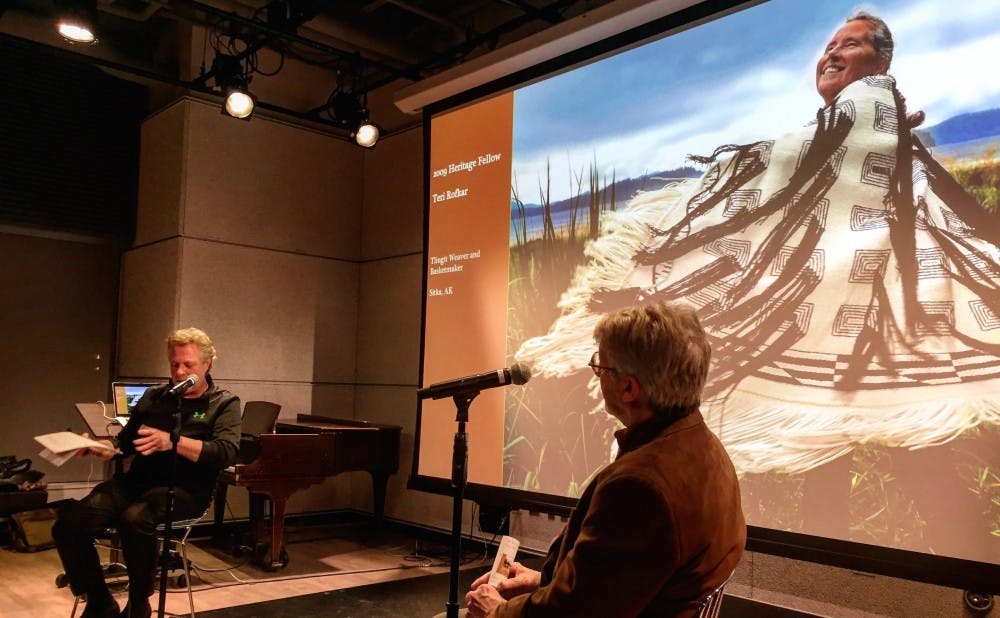In the 1970s, a recent Duke graduate named George Holt — who is now director of performing arts and film programs at the NC Museum of Art — organized one of North Carolina’s first folk festivals on Duke’s campus. With the help of Holger Nygard, a former Duke professor of folklore and medieval literature who passed away in 2015, Holt expanded his scope and formed a folk festival that would eventually become the Festival for the Eno, which still takes place annually at the Eno River State Park.
Perhaps most importantly, Holt’s efforts in amplifying and celebrating North Carolina’s rich history of folklife paid off with another tangible result: By the end of the decade, the North Carolina Arts Council established a folklife program focused on promoting public knowledge and appreciation of North Carolina’s folklife and traditional arts, as well as identifying and documenting traditional artists within the state.
So it is only fitting that Duke is returning to its roots in folklife by launching a partnership between Duke Arts and the NC Arts Council for the former’s 2019 Spring Documentary Initiative. The two organizations will join forces to support the NCAC’s Millennial Traditional Artists Project, which was created in 2016 to propel the careers of young traditional artists by providing them with high-quality digital media. The artists that the NCAC would define as “traditional” are individuals who create art born out of a sense of identity, community and tradition, including Chinese dancers who perform 5000-year-old choreography, Appalachian banjo players and Native American basket weavers.
Sally Peterson, folklife director at the NC Arts Council, stressed that a lack of access to career-building resources is one of the principal challenges that traditional artists currently face.
“Many [young traditional artists] learn their arts within a community setting or a family setting, so they don’t often have the built-in advantages that you derive if you are lucky enough to follow a program at a university,” Peterson said. “They don’t have access to the kinds of information about building a career, about promoting yourself.”
And although institutional support is extremely critical for finding success within the traditional arts field, Peterson pointed out that materials like professional portraits, which seem almost ubiquitous in the professional world, are tough to obtain for traditional artists.
“One of the things we found out is that it’s particularly difficult for some of these young people to get good, high-resolution photographs of their work, their performances, their story,” Peterson said. “But we also know through our connections with the UNC American Studies program and Duke’s Center for Documentary Studies that North Carolina can boast probably the most young people who are studying documentation of traditional communities.”
From that sentiment arose NCAC’s desire to partner with Duke, as well as other universities within the Piedmont region of North Carolina. For the initiative, volunteer photographers will be partnered with a traditional artist who works within the Piedmont, meet with the artist for one to two photography sessions and then provide them with a series of high-resolution photographs that they can then use for professional purposes, such as album covers or publicity materials. Volunteers can be of any age or professional creed, but the organizers hope Duke students will benefit from it.
“What I want from [the partnership] is the understanding that we can do more of these types of meaningful, layered projects that connect students with really unique opportunities and real-world products,” said Katy Clune, arts communications specialist for the Office of the Vice Provost for the Arts. She also holds an M.A. in folklore from UNC-Chapel Hill. “This is a chance to get off campus and meet a creative person in their community within the Piedmont, learn about what they do and collaborate on a portrait that will have an impact on the artist’s career and yours.”
The Millennial Traditional Artists Project will kick off March 23 with a gathering of the traditional artists involved and the photographers they’ll be partnered with, as well as artists and professionals not directly tied to the project or organization. The artists (and arts) represented will include spoken word poets, chefs, craftspeople, hip-hop artists, dancers, musicians and more — a seemingly small sample of the inexhaustible variety of traditional arts that are practiced in North Carolina.
“I use two phrases [to describe folklore]: ‘the activist pursuit of beauty in the ordinary’ and ‘the study of artistic expression in everyday life,’” Clune said, quoting Steve Zeitlin of CityLore in NYC. “That’s a very broad definition ... but traditional artists are a diverse mix.”
If you’re interested in volunteering for the Millennial Traditional Arts Project, e-mail Sally Peterson at sally.peterson@ncdcr.gov. Volunteer applications are due Friday.
Get The Chronicle straight to your inbox
Signup for our weekly newsletter. Cancel at any time.

